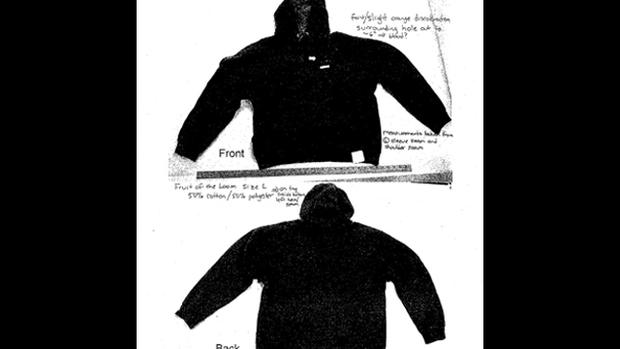George Zimmerman trial: Zimmerman was a "wannabe cop" who profiled Trayvon Martin, prosecutor says in closing argument
(CBS/AP) SANFORD, Fla. -- George Zimmerman made an incorrect assumption that Trayvon Martin was "up to no good" the night of Feb. 26, 2012, and ultimately, took actions that led to the teen's death, prosecutor Bernie de la Rionda alleged in closing arguments Thursday.
PICTURES: George Zimmerman on trial in death of Fla. teen
WATCH: Zimmerman won't take stand in own defense
READ: Trayvon Martin Shooting: A timeline of events
De la Rionda portrayed Zimmerman as a "wannabe cop" who profiled Trayvon Martin as a criminal. But he told the jury that it was Martin, not Zimmerman, who had reason to be in fear that evening.
"Who started this? Who followed who? Who was minding their own business? Of the two, who was the one that was armed?" De la Rionda asked the jury.
Beginning his closing arguments Thursday, de la Rionda showed jurors a picture of Martin - the last one taken before his death. "A teenager is dead. He is dead through no fault of his own," he began.
Because Zimmerman's assumptions were wrong, he said, "Trayvon Benjamin Martin no longer walks on this earth."
De la Rionda portrayed Martin as a boy only several weeks past his 17th birthday, walking through a neighborhood after going to the store -- "normal, everyday" thing. He said Zimmerman followed Martin that evening, and asked jurors to consider why the former neighborhood watch captain got out of his car if he felt threatened by the teen.
"Why does this defendant get out of the car if he thinks Trayvon Martin is a threat to him? Because he's got a gun! He's got the equalizer! He's going to take care of it! He's a wannabe cop!" asked De la Rionda.
He urged jurors not to take the moments of the struggle in a "vacuum," but rather to consider the events that lead up to them, which he said began "months" before. He played a police recording of Zimmerman telling a police officer about the crimes that had been committed in his neighborhood that prompted him to start a neighborhood watch.
De la Rionda said Zimmerman "followed" and "tracked" Martin, because he didn't want him to get out of the neighborhood before police arrived.
"In this defendant's mind, he was a criminal, and he was tired of criminals committing crimes out there," De la Rionda said.
Zimmerman, 29, is charged with second-degree murder in the teen's shooting death. He claims he shot the teen in self-defense.
Referencing the testimony of neighbors who witnessed portions of the struggle, one of whom testified he believed George Zimmerman was on the bottom during the fight, de la Rionda appeared to concede Martin may have been on top at points during the altercation.
"My point is there was a fight, there was a struggle. At some point it appears, based on the evidence, at some points the defendant was on top, at some points the victim was on top. But why did it occur? If you believe he is an innocent man, the victim came up and just decided to smack him?"
De la Rionda said there was no blood on the victim's hands, and that his DNA wasn't found on Zimmerman's gun, though Zimmerman claimed he had reached for it.
Trayvon Martin's body "provides evidence as to the defendant's guilt," De la Rionda said.
"His body speaks to you, even in death, it proves to you this defendant is lying about what happened," he said.
He also referenced the testimony of Rachel Jeantel, the 19-year-old woman who was on the phone with Martin at the time of his death. Jeantel testified that she heard Martin saying "Get off, get off," just before his death.
Jeantel appeared exasperated at times during her testimony and her cross-examination with defense attorney Don West became heated at times. Referencing Martin Luther King's "I Have a Dream" speech, de la Rionda asked jurors to use "the content of her testimony."
"Just because she's got a colorful personality, just because she referred to me as 'the bald-headed' dude or whatever, doesn't mean her statements aren't accurate," he said.
Zimmerman showed ill will and hatred when he whispered profanities to a police dispatcher over his cell phone while following Martin, said de la Rionda as he urged jurors to hold Zimmerman accountable for his actions. In order to get a second-degree conviction, prosecutors must show Zimmerman showed ill will, hatred or spite.
"The law doesn't allow people to take the law into their own hands," de la Rionda said.
De la Rionda dismissed defense claims that Zimmerman acted in self-defense, accusing the neighborhood watch volunteer of lying about what happened. The prosecutor also showed jurors a headshot photo of Martin taken from his autopsy.
De la Rionda was continuing closing arguments Thursday.
Complete coverage of the George Zimmerman Trial-Trayvon Martin case on Crimesider


